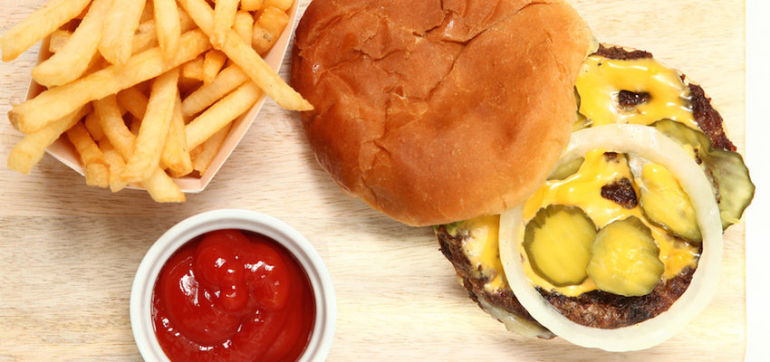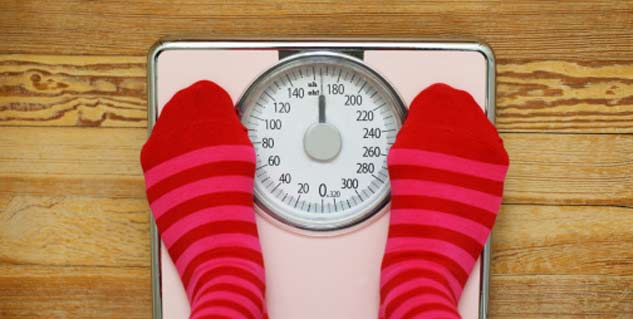10 Things Only People Carrying Extra Weight Know
With 69% of Americans being classified as obese, it is pretty safe to assume that the majority of us are familiar with battling our bellies. But despite this fact, people who are overweight, those seriously overweight in particular, are often faced with hurtful, rude, ignorant comments from friends, family AND strangers.
Prevention talked to obese women and health experts in order to gain some perspective and insight. Perhaps you can relate to these insights. If you can’t, perhaps you can gain some understanding and learn what not to say in the future.
“I’m working harder than you think.”
“The biggest misconception is that we just don’t care, and if we were really trying to lose weight, we would,” says Camille, 40, who is about 50 pounds overweight. “People underestimate how much we’re thinking about it, watching what we eat, and trying to be active. It’s on my mind all the time.”
“Food is my drug.”
“Overeating is far more like an addiction than it is a lack of knowledge or willpower,” says metabolic and weight management specialist Tom Rifai, MD, a clinical assistant professor of medicine at Wayne State University School of Medicine. You may not realize this, but eating can be addictive! Many processed foods trigger the same reward centers in the brain as drugs and alcohol! Breaking this addiction can be particularly difficult since it is impossible to abstain from eating completely. “I’ve worked with several recovering alcoholic and drug addicts, and all of them say that managing their food intake is way more difficult,” says Rifai.
“Being heavy can be painful—but so can being thin.”
40 year old Kaye has seen her weight fluctuate from 150 to 240 pounds. This has been, for her, both an emotional and physical struggle. “When I’m thin, I feel better physically, but out of control emotionally,” she says. At the moment, she’s 80 pounds over her ideal weight and she feels pain all over her body, especially in her legs, back and shoulders. “But eating is what makes my brain feel good. I wish I could put my fat brain in a thin body.”
10 Things Only People Carrying Extra Weight Know Click To Tweet“Stop saying I have a beautiful face.”
“Every time someone says it, I hear, ‘Given you are so fat, it is surprising you have such a pretty face,'” says Alison, 47, who is 100 pounds over where she’d like to be. Instead, try complimenting her on her accomplishments or her skill set.
“Don’t complain to me about your own weight or dress size.”
“I find it very insulting when thin friends complain about their weight or make comments about how they’re getting ‘fat,'” says Kaye. Alison agrees: “I don’t want to hear how fat you think you are when you’re 30 pounds less than my ultimate dream weight.” You may think you are relating to her struggle or maybe talking about our flaws is so ingrained in us you can’t help it, but remember, it can be hurtful.
“I’m very active.”
Although we might think otherwise, you cannot tell how active someone is just by looking at them. “I’ve done three marathons and over a dozen half-marathons,” says Alison. Marianne weighs 220 pounds but is almost always moving when at work teaching horseback riding. “The other day, someone actually said that I couldn’t run, but you have to run pretty fast to encourage a horse to canter,” says Marianne. “She almost fell over with surprise when I took off.” Mary Beth Palmer-Gierlinger, founder of Inspire Health Coaching in New York, isn’t shocked by these revelations. “Many people who are overweight are exercising more than slender people,” she says. “They’re desperate not to be living in that body.”
“I’ve tried starving myself, and it doesn’t work.”
Most overweight people have tried, at least once, to drastically cut calories and failed. Scott Isaacs, MD, clinical instructor of medicine at Emory University School of Medicine and medical director at Atlanta Endocrine Associates, says that while overweight people are probably eating too much, they are doing so because they are hungry. “Telling someone to eat less is a lot like telling them to breathe less,” he explains. “They can do it for a while, but eventually biology is going to win out.”
“I don’t need your ‘helpful’ advice.”
“When you remind someone that they said they were on a diet or ask if a food is ‘allowed,’ you are usually not helping—regardless of the tone of voice you use,” says Karen Collins, RDN, a nutritionist and advisor to the American Institute for Cancer Research. “Many, many clients I’ve worked with over the years note that following such exchanges, they switch into ‘rebel’ mode and then proceed to eat through a whole box of cookies or a dozen doughnuts.” Don’t play food police unless a friend has specifically asked you to keep things on track. This doesn’t just apply to friends but to mothers who feel the need to tell their daughters they are gaining weight. “Most overweight people know they’re overweight,” says Camille. “The more people suggest that I lose weight or try to ‘helpfully’ point out that I’ve put on some pounds, the more I want to eat.”
“Don’t sabotage my efforts.”
While unsolicited nagging is not cool, it is essential if you’ve been asked to do it. “Some clients get stuck in an unhealthy way of eating because their families get upset when they decide to make changes,” says Palmer-Gierlinger. Don’t get upset if your partner wants to get rid of the junk in the house. Don’t tempt your co-worker with your greasy lunch when she’s just ordered a salad. “Science shows that environment matters,” adds Rifai.
“I’m not necessarily unhealthy.”
Sure, obesity carries with it an increased risk of heart disease and diabetes but it is incorrect to assume that everyone who is overweight is in serious danger. “I may be technically obese, but I go to the doctor regularly and my cholesterol and blood pressure are always excellent,” says Camille. Katherine, who weighs 200 pounds, says that she seldom gets sick anymore. “When I was younger, I was skinny, but I ate horribly—think French fries, ramen noodles, and ice cream nearly daily—and I did not exercise often. I was also sick all the time,” she says. “These days I eat a really veggie-heavy diet and walk or bike almost everywhere that I go.”
“Don’t assume I’m trying to lose weight.”
There are many overweight people who wish to be slimmer but there are also those who are opposed to losing weight. In fact, Toby Smithson, RDN, a nutritionist and spokesperson for the Academy of Nutrition and Dietetics, says that she has counseled many women who intentionally gained because they believed it would protect them from unwanted advances. “Everyone flirts with you when you’re thin, and I don’t like people in my personal space,” says Marianne. “I suppose that, in a way, being fat is easier than wanting to scream ‘get the f*** away from me’ half the time.” At the end of the day, weight is just a number and some people believe there isn’t much point in focusing on it so closely. “There is no right or wrong weight,” says Amy Pence-Brown, 40, a body positive activist, “All bodies are good bodies, and you cannot tell someone’s health just by looking at them.”
It is important to remember that while you may think you know someone’s story based on how they look, that can be a dangerous and hurtful assumption. Unless asked to help specifically, it is best to leave weight out of the conversation. Before you comment, think about how you feel when someone makes an unfair assumption about you!
Can you identify with these comments? Share your thoughts with us.
Source: Prevention
-
The Astounding Benefits Of Walking
If you are like most people today, you could stand to lose a few pound
-
You Can Do It! Lose The Weight With This Advice!
Shedding extra pounds may seem impossible, but it needn’t.
-
Simple Guidelines To Losing Weight The Right Way
Obesity is a big problem in America and the world. Our life is filled
-
Whats Best For Losing Fat Aerobic Exercise Vs Weight Training
Resistance is not FutileWe all know that to lose weight requires a com
-
How to Get Slim and Shapley Thighs Quickly and Easily
Wide, heavy thighs that rub together. Ev
-
Top Weight Loss Techniques - Top Diets That Work
Different kinds of diets and weight loss techniques are there today an
- DON'T MISS
- Easy Weight Loss - FREE Fast Weight Loss Tips
- Is Weight Loss Hypnosis For You? If Youve Tried Dieting To No Avail, The Answer Is yes!
- Finding Your Fat Burning Zone
- How Your Sleep Patterns May be Affecting Your Diet
- The Easiest Ways To Rev Your Metabolism (Hint: Avocados!)
- Weight Reduction – Ways of Deal with Such a Predicament
- Weight Loss Plan: A Realistic Goal to Go For
- How Not To Be Overweight
- Look for these signs to spot a stroke
- How to lose weight with acai berry?




